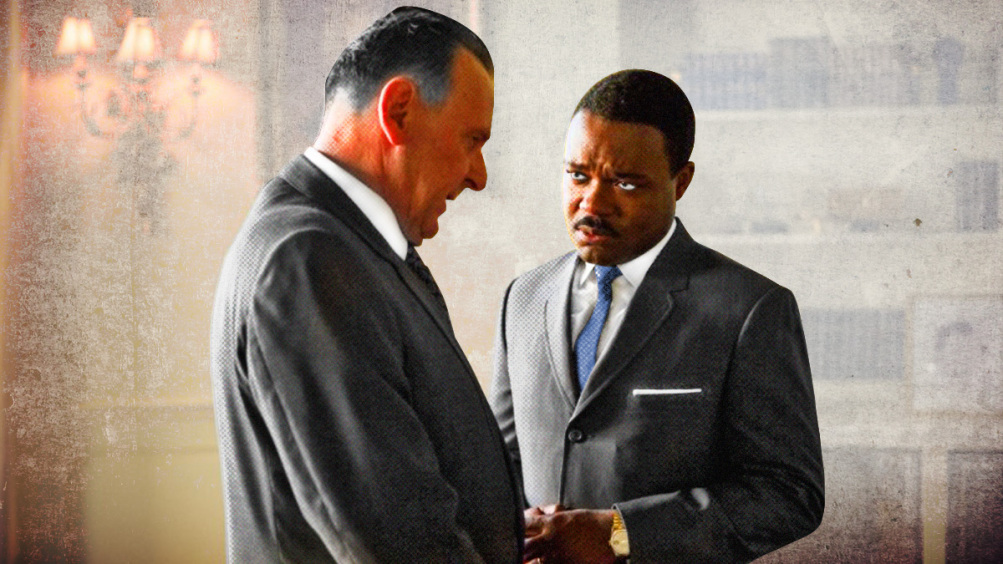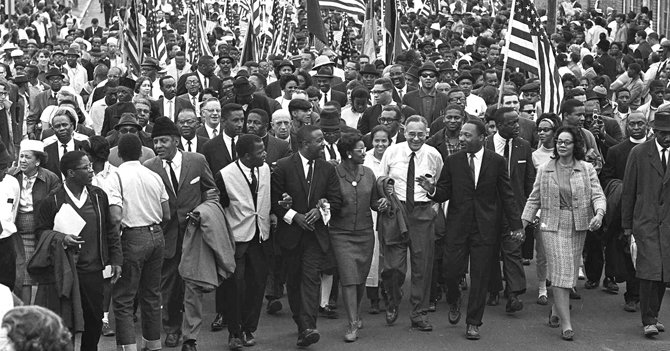
Should historical fiction be judged against the facts of history?
This question came to the fore after the recent release of “Selma,” a film chronicling the Reverend Martin Luther King, Jr. and the civil rights movement’s fight to secure voting rights for African-Americans in the south.
At the centre of the debate is the portrayal of President Lyndon Johnson’s role in the passage of the Voting Rights Act in 1965. The New York Times columnist Maureen Dowd criticized Selma director Ava DuVernay for suggesting that Mr. Johnson disagreed with Dr. King on how to proceed when it came to voting rights in the south. “Instead of painting L.B.J. and M.L.K. as allies, employing different tactics but complementing each other, the director made Johnson an obstacle,” she wrote.
She was not the only one to attack Ms. DuVernay and her narrative choices. A former aide of Johnson’s accused the film of perpetrating a falsehood:
The makers of the new movie “Selma” apparently just couldn’t resist taking dramatic, trumped-up license with a true story that didn’t need any embellishment to work as a big-screen historical drama. As a result, the film falsely portrays President Lyndon B. Johnson as being at odds with Martin Luther King Jr. and even using the FBI to discredit him, as only reluctantly behind the Voting Rights Act of 1965 and as opposed to the Selma march itself.
Ms. DuVernay responded by saying that it was important for her not to create ‘a white-savior movie; I was interested in making a movie centered on the people of Selma,’ and dramatizing that moment in American history.

If you haven’t noticed yet, the critics and the film-maker are talking past each other. One side insists that historical dramas should be bound by absolute fidelity to ‘facts.’ While the artist retorts by saying that the emotional truth of history is more important than the actual events of the past. In Ms. DuVernay’s words, “[t]his is art; this is a movie; this is a film. I’m not a historian. I’m not a documentarian.”
As this debate has unfolded, I am reminded of what the writer Philip Roth says about history in his novel, The Plot Against America. He wrote:
‘[T]he relentless unforeseen was what we schoolchildren studied as “History,” harmless history, where everything unexpected in its own time is chronicled on the page as inevitable. The terror of the unforeseen is what the science of history hides, turning disaster into an epic.’
In other words, there are gaps which History will struggle to fill. And this is why we need novelists like Mr. Roth and film-makers, like Ms. DuVernay, to help us imagine what it was like to be in that historical moment. Does this suggest that artists are free to re-imagine the past as they see fit?
The answer is a little more complicated.
Here is what I know to be true. Few historical accounts convey as powerfully the horror of the bombing of the four little girls in Birmingham, Alabama, the way ‘Selma’ does in the opening scene of the film. Or show what the emotional dynamic was like for Dr. King and his wife Coretta when she confronted him about his alleged extra-marital affairs, something that is dramatized in the movie. And yes, ask the difficult questions of how Johnson viewed, initially, the political urgency of a voting rights bill.
Johnson, a shrewd politician, was not completely blind to the political significance of his decisions. Upon signing the Civil Rights Act in 1964, he said: “[Democrats] have lost the South for a generation.” This does suggest, as the film contends, that while Johnson was not against working on voting rights, he was always aware of the politics of such actions and acted accordingly. And in 1965, he did not feel it was politically sound to pursue the Voting Rights Act. In fact, this PBS documentary on Johnson suggests as much.
Regardless, the debate over whether Johnson was an ‘obstacle’ or complimented Dr. King’s efforts will continue. What ‘Selma’ manages to achieve is help the audience empathise, in the old-fashioned sense of the word, with those, black and white, who sacrificed their lives for the freedom of their fellow citizens. And in turn Ms. DuVernay gives us a sense of the terror of the unforeseen for those who lived through that moment in history.
Much gratitude to Vlad Odobescu for his nuanced review of this post.

This is a great, intellectually-stimulating writing. It tells and intersects the Selma movie’s contrasting reviews and historical (in)actions of the politically-explosive civil rights crusade in a compelling way. I would have loved to read more on the comparisons in the movie cast and the Ferguson race riots. Great job nevertheless.